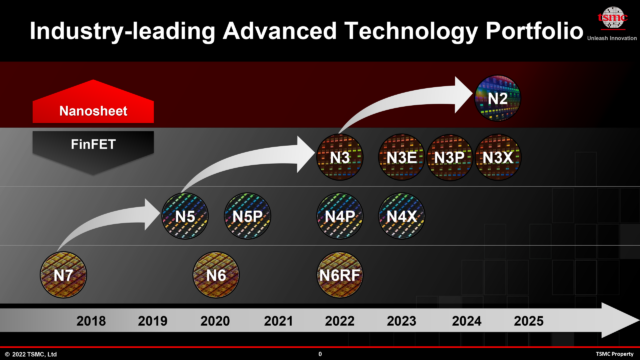erek
[H]F Junkie
- Joined
- Dec 19, 2005
- Messages
- 10,875
Bad news for NVIDIA's NextGen 3nm chiplet GPUs
"Macrumors states that Apple will also be the first customer for N3E later this year. Intel was supposedly going to join Apple at the N3 table by purchasing GPU tiles for its upcoming Meteor Lake CPUs. However, delays might have forced it to go with N4 instead. With Apple’s purchase, it looks like Intel will be left out in the cold for the first run of N3. Since N3E is supposed to be coming online around the time Meteor Lake launches, we won’t be surprised to see its iGPU be an N4 product.
The purchase by Apple is exciting for the industry, as 3nm promises to be a blockbuster node for TSMC. In fact, TSMC is so confident that it raised prices for Apple, and the company reportedly buckled in negotiations over it. Despite the now-finalized agreement, we won’t see the first 3nm chips for another six months, at least."

Source: https://www.extremetech.com/computing/343291-apple-has-procured-tsmcs-entire-first-run-of-3nm-chips
"Macrumors states that Apple will also be the first customer for N3E later this year. Intel was supposedly going to join Apple at the N3 table by purchasing GPU tiles for its upcoming Meteor Lake CPUs. However, delays might have forced it to go with N4 instead. With Apple’s purchase, it looks like Intel will be left out in the cold for the first run of N3. Since N3E is supposed to be coming online around the time Meteor Lake launches, we won’t be surprised to see its iGPU be an N4 product.
The purchase by Apple is exciting for the industry, as 3nm promises to be a blockbuster node for TSMC. In fact, TSMC is so confident that it raised prices for Apple, and the company reportedly buckled in negotiations over it. Despite the now-finalized agreement, we won’t see the first 3nm chips for another six months, at least."

Source: https://www.extremetech.com/computing/343291-apple-has-procured-tsmcs-entire-first-run-of-3nm-chips
![[H]ard|Forum](/styles/hardforum/xenforo/logo_dark.png)